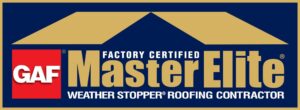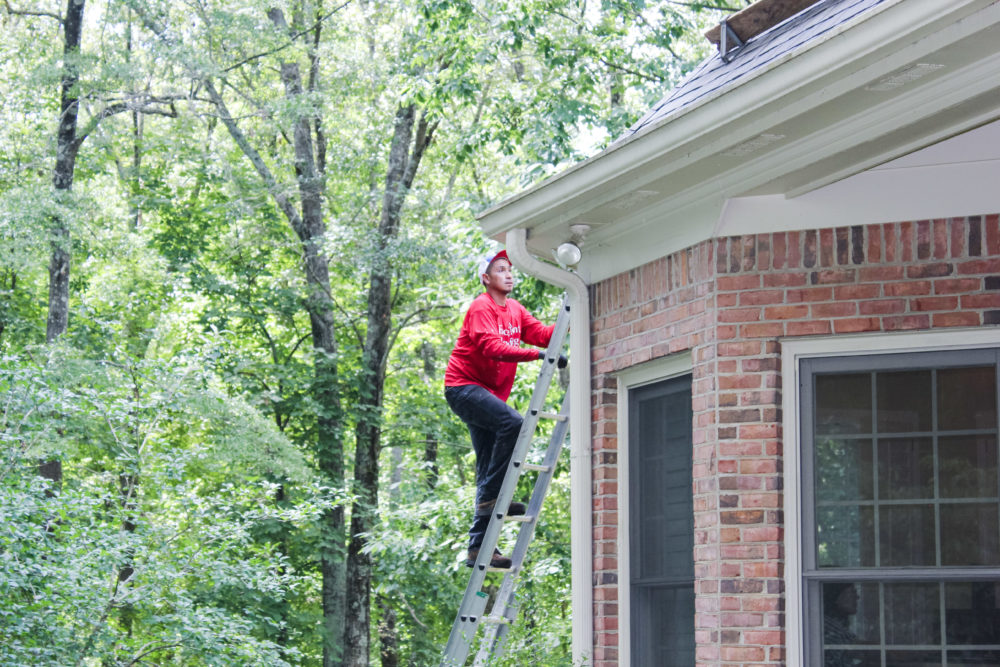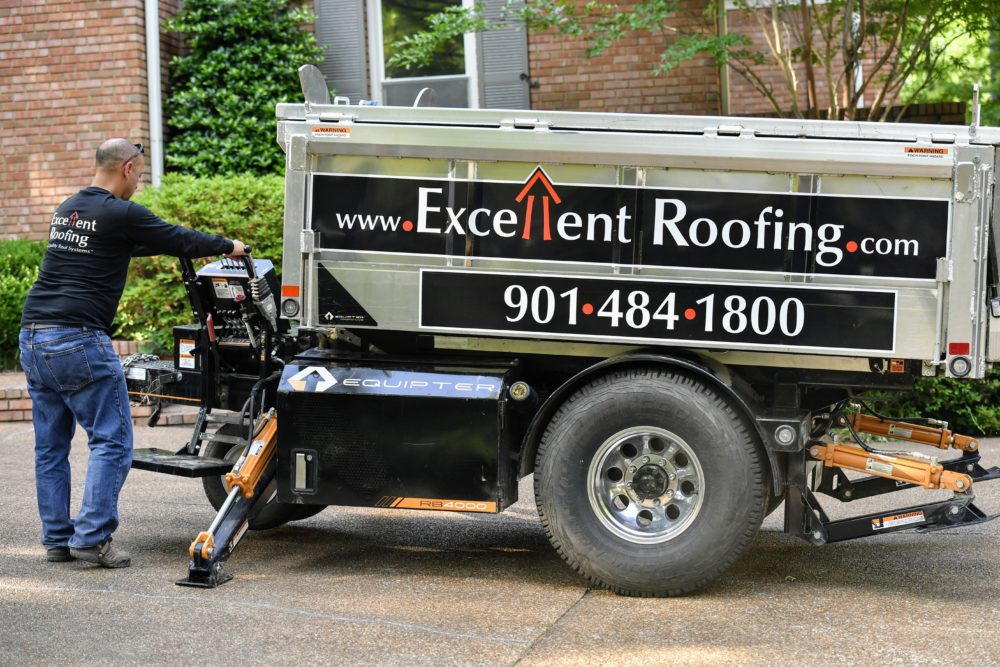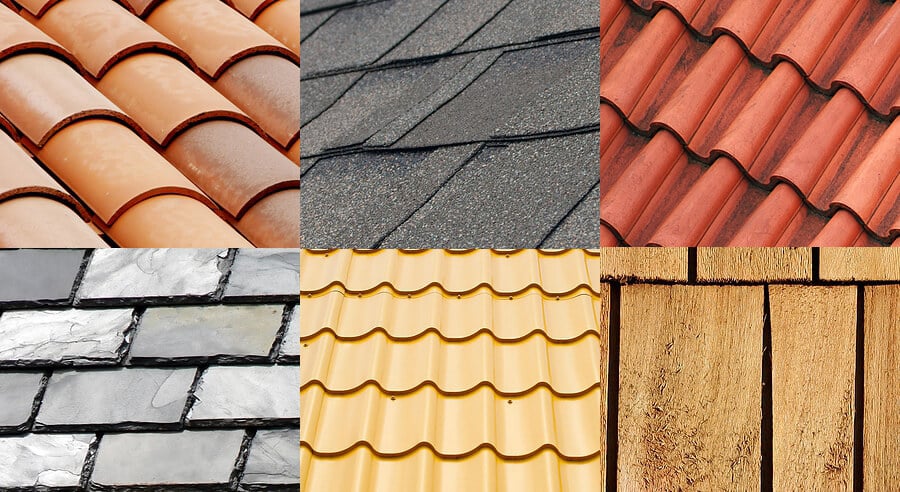There are a lot of terms you might hear out there when it comes to roofing warranties like limited lifetime roof, 15 year or 20-year labor and material warranties. It’s not uncommon to be confused or even misunderstand what all of the words or phrases mean. So, in light of all the warranty buzz words out there, let’s take a few quick minutes to clear the confusion and understand what really matters when it comes to roofing warranties that your potential roofing contractor may or may not be offering you.
In addition to the video, we’ve included a breakdown below of the following types of roofing warranties you need to know about.
The Two Primary Types of Warranties You Should Know About
1. Labor and Material Roofing Warranty
A lot of times when people get a new roof, they get a warranty that’s coming from the manufacturer. They believe that if anything goes wrong with the roof, that they’re going to be covered with this warranty.
Most of the time, those warranties only cover the roofing material itself. This warranty protects the customer against anything defective with that material. And because all of these roofing materials a contractor may use are made at manufacturing plants, sometimes there are material defects that a roofer wouldn’t be able to see during the installation.
It’s at this point, often when it’s too late, that customers become confused around what is or isn’t covered. This is magnified when an unfortunate situation arises such as a roof leak.
Common Customer Misconceptions with Labor and Material Roofing Warranties
Misconception #1: The labor and material warranty on their roof will cover damage caused by a roof leak.
Unfortunately, this is not the case. A labor and material warranty only covers manufacturer’s defects.
Misconception #2: My roof is fairly new, so there must be a manufacturer defect causing my roof leak.
Believe it or not, in almost every case, a manufacturer defect isn’t the reason your roof is leaking.
Labor and material warranties are very valuable and important to have. But, remember the coverage is limited to manufacturer defects. So, this means you will not be covered against other problems that could arise with your roof.
This brings me to one of the most important roofing warranties you should ask your potential roofing contractor about.
2. Workmanship Roofing Warranty
I can’t overstate how important it is for you to ask your potential roofing contractor about their Workmanship Warranty Coverage.
A workmanship warranty is one of the most important warranties to have when you get a new roof. This type of warranty covers any mistakes that may have been made by the roofing contractor during the installation of your new roof such as placing a piece of shingle or flashing incorrectly.
A common scenario:
Let’s say you come home one day only to discover there’s a leak in your roof. You call the roofing contractor who installed your roof to confirm coverage and protection. With a workmanship warranty, the contractor is will fix your roof as well as fix any other damage caused by the leak.
Depending on the contractor, workmanship warranties usually provide coverage anywhere between one (1) to ten (10) years. Before you agree to work with a roofing contractor, be sure they are providing you with a Workmanship Warranty.
3. Workmanship Roofing Warranty plus Manufacturer Underwriting
Some workmanship warranties are underwritten by the manufacturer which will extend the length of coverage.
Roofing manufacturers Owens Corning, Certainteed, and GAF are three of the top roofing material manufacturers in the world. Each of them offers customers extended coverage through a select group of qualified roofing contractors.
For example, in the greater Memphis area (including Arkansas and Mississippi), Excellent Roofing is one of only a small handful of roofing contractors that have been qualified by all three of these top manufacturers to offer this type of warranty.
This means we can issue a residential workmanship warranty for up to twenty-five (25) years. This is more than two times the length coverage you’ll receive with a standard workmanship warranty.
Does this type of coverage cost more money?
It really depends on the length of coverage you prefer. For a more long-term underwritten manufacturer’s warranty, you may have to pay a little bit more. But, you will gain peace of mind knowing, that if anything goes wrong with your roof, it will be covered.
It’s important that you choose a roofing contractor who offers this level of warranty coverage. In addition, be sure they’re in good standing with the manufacturer and willing to work with the customer who originally purchased the roof to cover anything that goes wrong.
Bottom Line
Most contractors only offer standard Labor and Material Warranties and this only covers defective materials and does not cover roof leak damage or the roof workmanship.
You’ll want to get a workmanship warranty that’s extended to you from the contractor that’s installing your roof and also underwritten by the manufacturer.
It’s important that you keep good records and copies of estimates, warranty information, and coverage limits.
6 Questions You Definitely Want to Ask A Potential Roofing Contractor
As a customer, when it comes to warranty coverage, it’s important that you ask the right questions. So, here’s a list of questions we suggest you ask potential roofing contractors before you agree to hire them for your roofing job:
- Are you an Owens Corning Preferred Contractor? CertainTeed Select Shingle Master Contractor? Or a GAF Master Elite Contractor?
- Did you include Labor and Material Warranty coverage in my written estimate?
- Did you include Workmanship Warranty coverage in my written estimate?
- Are you able to offer me a Workmanship Warranty that is also underwritten by the manufacturer?
- What is the length of coverage for each of the warranties you’ve included in your written estimate?
- Will you be registering these warranties for me? Or am I responsible for registering my warranties?
- When should I expect to receive a written copy of the warranty?
Always remember to #BeExcellent
Excellent Roofing’s Credentials







